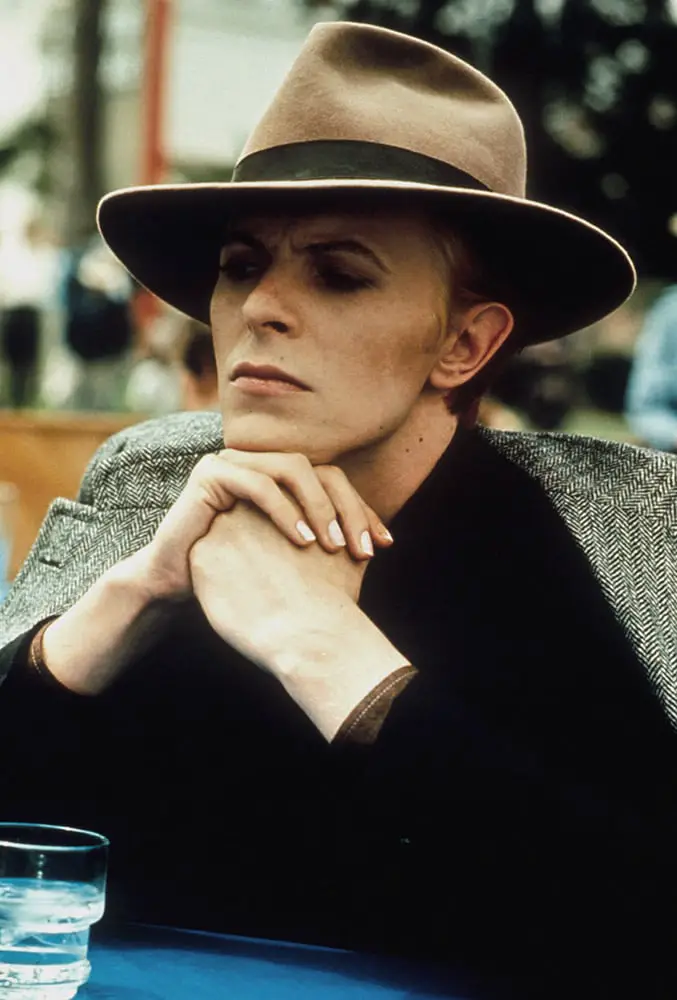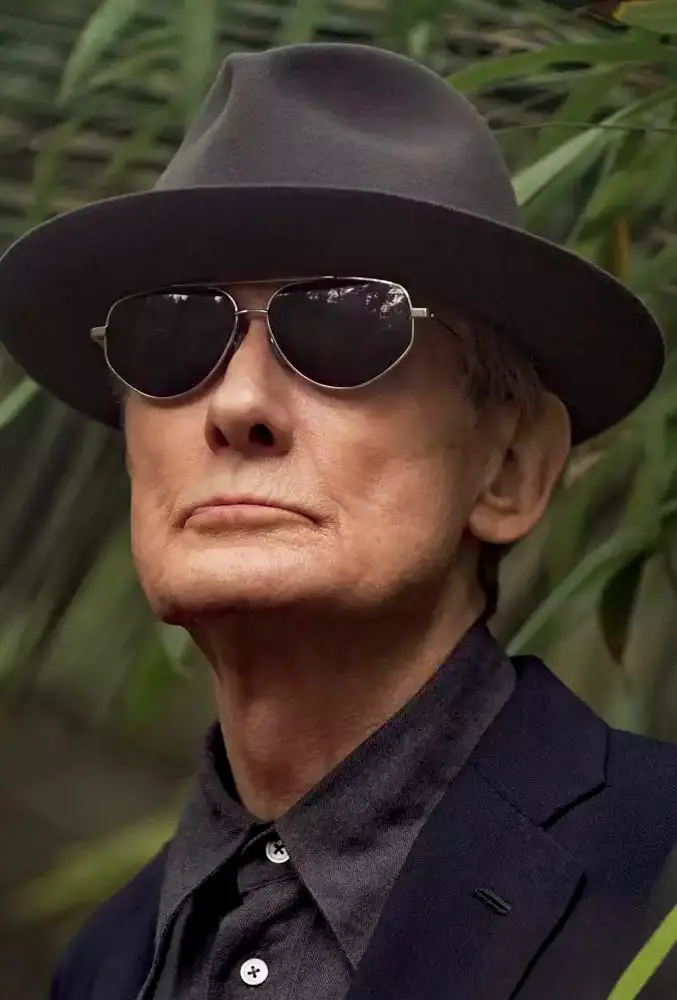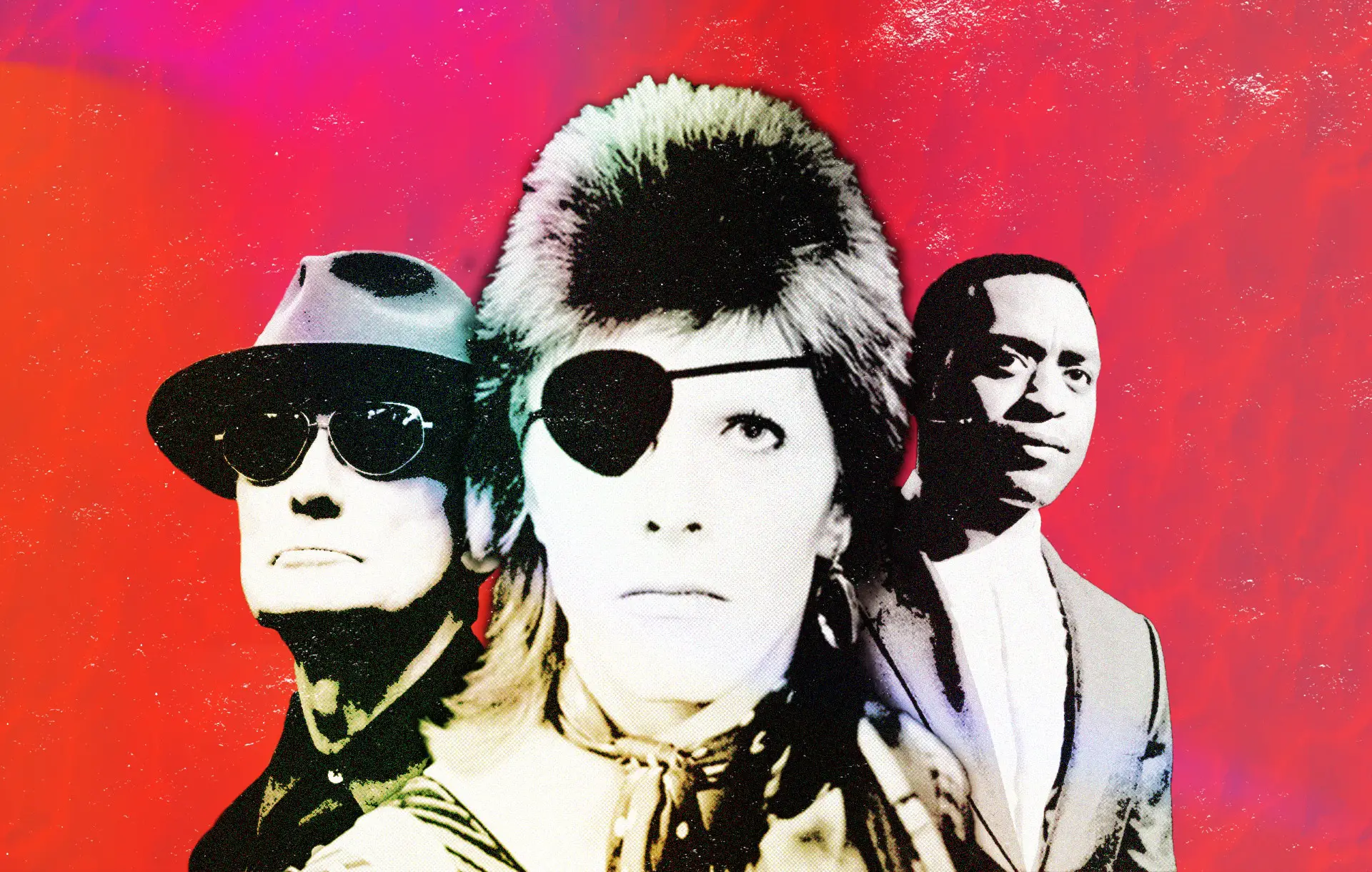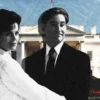Showtime’s The Man Who Fell to Earth is a beautiful homage to David Bowie, from its quiet beginning to its ambitious ending. Showrunner Alex Kurtzman felt the weight of the responsibility in resurrecting such a beloved title, and wanted to do it right – to show reverence to Bowie. “I think we felt a tremendous debt to honor the legacy of David Bowie, of Walter Tevis and Nicolas Roeg – of all the people who built these extraordinary stories because they clearly wrenched their hearts open to tell them.” Kurtzman told Deadline. “We felt like the only way to do this authentically and honestly is to do the same.” Kurtzman and company create a rich, current narrative that honor’s Bowie’s legend, both source materials, and ponders the capitalist “tragedy of the commons” theory that has put our planet in an environmental bind. Kurtzman injects every aspect of the production with Bowie’s DNA, from his music to his ideologies.
Bowie’s Music & Persona – A Main Ingredient
The title of the first episode, “Hallo(,) Spaceboy,” is a reference to Bowie’s song off of his 1995 album Outside. “Unwashed and Somewhat Slightly Dazed (off of his 1969 self-titled album),” “New Angels of Promise” (from 1999’s …close), “Under Pressure” (a 1981 single Bowie released with Queen), “Moonage Daydream” (Arnold Corns’ 1971 single), “Changes” (off of the 1971 album Hunky Dory), “Cracked Actor” (from 1973’s Aladdin Sane), “The Pretty Things Are Going To Hell” (from 1999’s Hours), “As the World Falls Down” (off of Labyrinth’s 1986 soundtrack), “The Man Who Sold the World” (the title track of an album released in 1970), are the remaining episode titles. At the end of the final episode, Bowie’s “Five Years” (from his 1972 album The Rise and Fall of Ziggy Stardust and the Spiders from Mars) plays – the first of his songs to arrive over the course the show’s outstanding ten-episode soundtrack.
When the adaptation/continuation of the 1976 film was announced, fans were divided. On one end, there was buzz that it could disrespect the original. On the other end, people were encouraged by the idea of both a loyal adaptation and sequel, especially with such reverence to Bowie behind the production. “Our hope was, okay, if you’re with the show, by the time you get to the 10th episode, you see what a love letter the whole series is to David Bowie.” Kurtzman said to Deadline. A “love letter” is a perfect encapsulation of what Kurtzman and company created in honor of Bowie.


Overt Lyric References
Even with only one song on the soundtrack, Bowie remains closely tied to the new series, including references to him and his work beyond song titles and the iconic film continuation. To recast Bowie was a daunting task for everyone involved in the production. Bowie played Thomas Jerome Newton in the original film. With oversized shoes to fill, Bill Nighy does so with ease, bringing to life his friend’s famous character again. Nighy, although not close with Bowie, spent enough time with him over their years of knowing each other to pick up on his mannerisms. The way he carries himself. His essence. And he brings that essence to this revamped character, who has a new life, in a sense, after the ending of the film version. The dialogue is exceptional. Believable. Natural. Even when Bowie’s lyrics bleed into them. Throughout the series, song lyrics included in the dialogue, from the obvious to the abstract, are abundant: A “Lazarus” reference and “I am the king,” a variation of “I will be king” from “Heroes” in Episode One, “Spaceman” is a variation of the recurring “spaceboy” lyric from “Hallo Spaceboy” in Episode Two and Five, “The stars look very different from here,” a variation of the lyric that includes “today” in lieu of “from here” from Space Oddity in Episode Three, “Tell my wife I love her very much, She knows,” also from “Space Oddity,” in Episode Four, and “ch-ch-ch-changes,” from “Changes” in Episode Six. All lyrics are spoken by Altheons – either Faraday or Newton.
Covert Lyric References
The more under-the-radar references include Clive’s unique relationship with birds, introduced in Episode Five, paralleling Bowie’s tracks about Peter and The Bird from the album Peter And The Wolf in 1971. “On a branch of a big tree sat a little bird, Peter’s friend. ‘All is quiet, All is quiet,’ chirped the bird gaily,” sings Bowie in “The Bird.” Birds chirp whenever a scene with Clive unfolds, even when there are no birds visible in the frame, or even present in the setting. In Episode Seven, Newton tells Faraday he has to lie, and in a “Telling Lies” (a 1996 single) lyric, Bowie sings, “Telling lies, oh, I’m visionary, oh, I’m visionary,” referencing the tech CEO persona Faraday creates throughout the series; lying is an essential part of his transformation into a human being.
Also in the song is the repeated lyric: “I am the future.” Faraday and Justin Falls hold the future of their respective species in their hands. Newton also tells Faraday that he has to become a legend. On the 1974 album Diamond Dogs, in the song “Future Legend,” Bowie describes genocide, alluding to Newton’s plan to bring the Altheans – a humanoid species – to Earth. The song talks of “peoploids” splitting into tribes, much like how the humans will become Altheans, splitting into either Drones or Adepts. In Episode Eight, Portia says, “I love you more than life itself,” a play on Bowie’s “Wild Is the Wind” (off of Bowie’s 1976 album Station to Station), which includes the lyrics “love me,” and “You’re life itself.” That same episode, Sister Mary-Lou insists Newton and Faraday are angels. However, Faraday exposes Newton as a “fucking liar.” Altheans communicate on a frequency, a noise unintelligible to human technology. Noise Angel is a 2018 live concert album that includes a rendition of “The Man Who Sold The World.” In that song, the lyrics reflect, almost verbatim, Newton’s new character arc, his and Faraday’s ethereal meetings, and their plight to become human on a new planet:
“We spoke of was and when
Although I wasn’t there
He said I was his friend
Which came as a surprise
I spoke into his eyes
I thought you died alone
A long, long time ago
Oh no, not me
We never lost control
You’re face to face
With the man who sold the world
I laughed and shook hand
And made my way back home
I searched for form and land…”
In particular, speaking into Newton’s eyes is an important motif, having famously lost them during a CIA torture session. He’s been presumed dead for decades. He sold his tech company, one that contained the algorithm to save both Earth and Althea. He sold the world. And that is exactly what is revealed in the eponymous Episode Ten. He placed the needs of his own before the collective’s. Also in Episode Eight, Sister Mary-Lou says that Newton “never knew love until he met an alcoholic,” and it “ruined him.” Two mismatched lovers, one an alcoholic that is destroying the relationship, both stories a variation of the song “Heroes” and the plot of the original film. In Episode Nine, Faraday says “you’re obsessed with skin.” Bowie changed his persona with makeup and fashion, along with an evolving musical style. Bowie is also known as the “Chameleon of Rock.” Also in Episode Ten, the Space Oddity reference is more indirect; Faraday could be considered Major Tom taking off on a ship to reunite with his family, paralleling the ending of the track.
“I think (Bowie) set the tone for Altheans in terms of their emotional intelligence,” Chiwetel Ejiofor told IGN. “There’s a kind of vulnerability there, a sort of naivete that is potentially corruptible. There’s something wide-eyed about it, even though he’s quite steely as a character at times. I feel like a lot of these kinds of emotions or characteristics were useful as a base point for where Faraday could take off from.” “Emotional intelligence” was one of Bowie’s many strengths. Not only with how he played Newton in the original, but also in real life. His wisdom was decades beyond his age. Perpetually ahead of his time.
The music in The Man Who Fell to Earth is more than just a stellar Jeff Russo score and soundtrack, it’s part of the structure. From the way the frequency of Faraday’s quantum fusion reactor prototype matches Joy’s Apollo 100’s G key, to being an integral part in how the later reactor Faraday, Justin, and Josiah build functions, to the way Faraday’s random click sounds from researching on an iPad integrates into the score, to Justin and her husband being skilled pianists and being able to understand music theory, it is deeply embedded in the story. “We were like okay, we’re making a show that is also very much about music both in the choices of the source that we used and also in the score. So, are we really going to go through this without having a Bowie song? Well, no is the answer.” Kurtzman continued to Deadline about the importance of music and the inclusion of the only Bowie song.
Bowie, Technology, & Prescience
“Five Years” isn’t just a random song choice. There’s a vast discography to choose from, any of the songs from which could have worked well, but it’s 2022, and in the series, Faraday warns Justin that humans only have ten years left on earth. So, five years is a warning of either our imminent doom or a reminder to right the course again and save two humanoid races. “It ends us on a note of pay attention.” Kurtzman added. “Pay attention, because now the choices that we make with what we have are going to determine the difference between us being here in five years or ten years or whatever or not. And so it felt like Bowie had the last word, which was important, and he had the right last word.” Indeed, Bowie has the last word. And the last laugh. So many of his songs are dipped in the luminescent paint of science fiction lore. However, over the years, much of the fiction has been replaced by scientific discovery as technology has advanced, but Bowie had the grace not to simply say, “I told you so.” He explained how we can do better as a species. How we can still right the ship while we have time.
“The story is really talking about how one looks at this planet, how one appreciates the planet and all that it brings and all that it allows us to do.” Ejiofor said to IGN. “As an Althean, what he recognizes is that everything is connected to the planet — the capacity to love, the engagement of families, the idea that you can roll around in meadows and read poetry if you want if you’re one of the lucky few living in environmentally safe areas. This is something that we take so entirely for granted.” Love, compassion, art appreciation, activism – these are all characteristics within Bowie’s music that have been transposed to Ejiofor’s Faraday.
“Faraday is trying to really understand what human beings require from tech, why they lean in and engage with it,” Ejiofor said. “There is power in tech. There is the potential for incredibly positive things to come out of technology. There’s also the potential for it to be manipulated. I was intrigued by Faraday looking at humanity and understanding that technological worship is a vulnerable point for human beings, and working out how to play with that.” Bowie was wary about technology. During a famous 1999 BBC interview, he referred to the future of the internet as both “exhilarating and terrifying,” calling it “an alien life form.” He predicted, “the state of content is going to be so different to anything that we can really envisage at the moment. Where the interplay between the user and the provider will be so in simpatico, it’s going to crush our ideas of what mediums are all about.” And this was before the dot com boom and social media. The internet would eventually create a social decline and cause more harm than good. Bowie saw the potential for this along with the good. A man ahead of his time, like Faraday.
“It’s always fantastic, I think, when people take a show, a piece of work, an artistic creation totally in the spirit that it is made, you know?” Ejiofor explained to Deadline. One can infer that it was a group love affair. Everyone, from the cast, the creators, and the crew, from the music supervisor to the producers, wanted to honor Bowie. And it translated. Even the series title is a direct reference to Metal Lord, the font used in Bowie’s The Man Who Fell to Earth. The dissenters – the loyal fans – who first expressed their distaste for the project when it was announced, may be pleasantly surprised and happily wrong post-watch.




